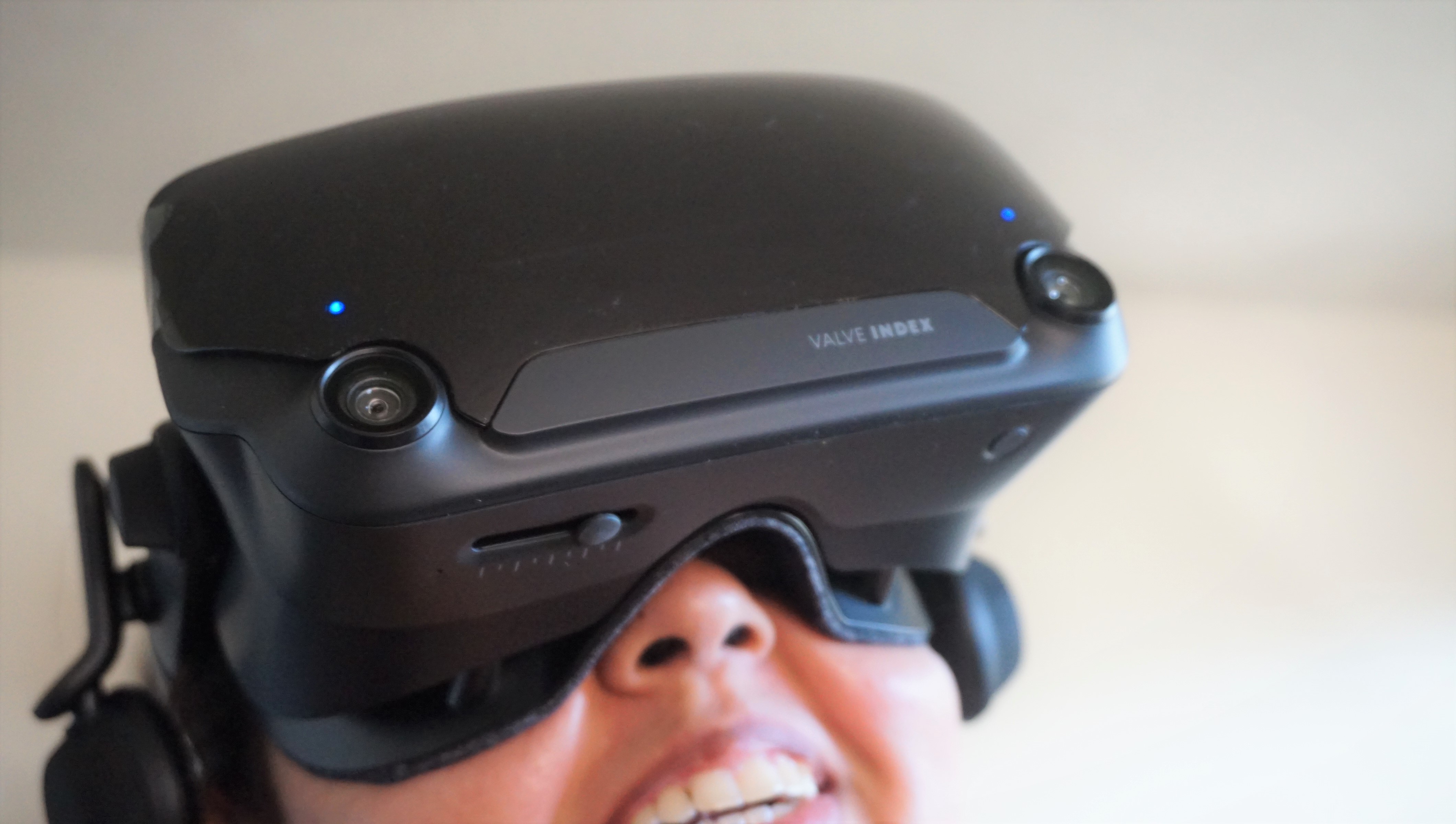As excited as many of us are to get our hands on the Steam Deck – Valve’s upcoming handheld gaming PC – there’s been a buzz online about what the device could tease for the future of Valve’s hardware.
In particular, there’s a chance the Steam Deck’s portability could explain early details about how a standalone Valve VR headset (similar to the Oculus Quest 2) could work. Given recent Valve employee comments, some now also believe the AMD processor powering the Deck could find its way into the rumored headset.
However, we’d be smart to slow down for a second, as the AMD chip powering the Steam Deck might not be the one-stop-shop some are starting to think it is. While it’s certainly on the right track, there’s a strong chance it’ll need an upgrade before Valve deploys it for use in a VR headset, and here’s why.
- Here are the best VR games of 2021
- Check out: Steam Deck vs Nintendo Switch OLED
Is Valve ready to bring the heat?
The best place to start is with what was actually said by Valve about the chip. If we go back to the original reporting by The Verge we can take a look at what was actually said by Valve veteran Greg Coomer.
With respect to the AMD chip being used in a standalone VR headset he said “We’re not ready to say anything about it, but it would run well in that environment, with the TDP necessary... it’s very relevant to us and our future plans.” But for those who don’t understand the jargon, what is Coomer saying here?
When we think of processors, we often just think about how powerful they are because most of the time that’s all we on the consumer end really care about. But designers also have to consider a slew of other factors including TDP, or thermal design power. TDP describes how hot the system gets under certain stress and how much power it consumes too.
In portable devices TDP is incredibly important to consider, get it wrong and users could quickly find their device overheating or running out of juice. While for smartphones it might cause you to be disappointed with the latest upgrade, for worn devices a burning hot headset can be downright dangerous.
What Coomer is saying then is that the way the AMD chip controls its heat and battery life is perfect for a standalone VR, but he stops short of saying much more and we can guess why.
For one, he won’t want to give away too much. Valve patents might have teased standalone VR devices earlier this year, but patents are not official confirmation by any means. For another, and more importantly right now, the processor likely isn’t powerful enough.

Sure, Valve promises a good AAA gaming experience on its handheld but in reality we’re looking at a 1,280 x 800 pixel image (that’s less than HD) and a max frame rate of 60fps. By comparison the Oculus Quest 2 (the current gold standard for standalone VR) runs at 3,664 × 1,920 and with a minimum framerate of 72fps while holding back processing power to manage head and hand tracking among other things.
Standalone VR games seen on the Oculus Quest store are typically less taxing than AAA hits, but even so, it’s likely Valve would want to ensure its next VR device doesn’t just match what’s available now but surpasses it.
That’s not to mention that Valve would probably also want its follow-up headset to live up to the Valve Index. This very powerful – and equally expensive – device can output a 1440 x 1600 image for each eye and has a 120Hz display (that can go up to 144Hz at a stretch). It’s also been commended for its next-level hand tracking.
You should expect more from PC-powered VR experiences like the Valve Index than standalone headsets, nevertheless, it will be easy to compare Valve devices to each other. As that’s the case, Valve’s going to need a better chip than what’s in the Steam Deck to avoid embarrassing itself.
For now, it’s a game of wait and see to find out if Valve is holding something back from us with its Steam Deck processor. But if we had to wager anything, we’d bet on it not showing up in a VR headset anytime soon.
- The cheapest VR headset deals, prices and sales in August 2021
source https://www.techradar.com/news/sorry-but-the-steam-decks-processor-probably-wont-appear-in-a-valve-vr-headset/
0 Comments:
Post a Comment